
On June 20, the academic presentation of doctoral students in law of Beijing Normal University, titled "Special Seminar on the Criminal Law Amendment (XII)," was successfully held in Room 1822 of the Rear Main Building of Beijing Normal University, Haidian. This event was divided into two thematic sessions: "The Criminal Law Amendment (XII) and the Criminal Law’s Protection for Private Enterprises" and "The Criminal Law Amendment (XII) and the Prevention and Control of Corruption Crimes". Six doctoral students of the Class of 2023 from the Law School of Beijing Normal University reported on their research results on the theoretical and practical issues of the Criminal Law Amendment (XII). Associate Professor Shang Haowen and Teacher Li Di from the Law School of Beijing Normal University served as reviewers. At the same time, four doctoral students from the School of Law of Tsinghua University, the Law School of Renmin University of China and the Law School of Beijing Normal University were invited to parti as panelists. Each of the six presenters based their talks on fully developed academic papers, with each presentation lasting for 20 minutes. Following the completion of the presentations in each session, a series of panel discussions, open discussions, and commentary were conducted. The event spanned nearly four hours, during which each speaker delivered a comprehensive report derived from their respective paper. Both faculty members and panelists had meticulously reviewed the papers in advance and provided in-depth feedback and discussions based on the live presentations, culminating in constructive revision recommendations for the papers of the six speakers.
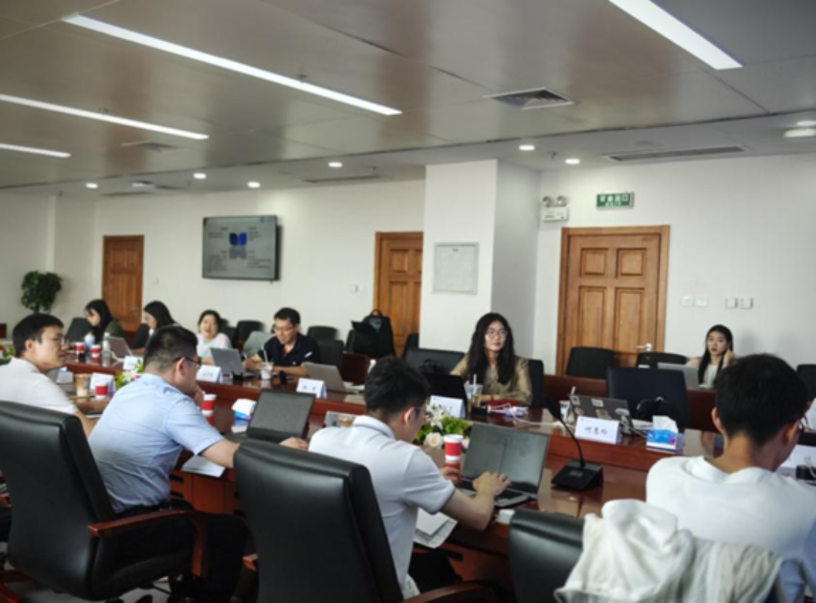
The theme of the first session was "The Twelfth Amendment to the Criminal Law and the Criminal Law’s Protection for Private Enterprises", hosted by Zhou Kai, a doctoral student at the Law School of Beijing Normal University. Wang Xinyu, a doctoral student at the Law School of Beijing Normal University, gave a report titled "On Equal Criminal Protection of Non-public Economy - Taking the Criminal Law Amendment (XII) as an Opportunity". He argued that the current criminal law’s legislative approach, which prioritizes the public sector over the private, is ill-suited to meet the higher demands of high-quality economic development for fair market competition. Wang advocated for the establishment of a policy principle that ensures equal criminal protection for the non-public economy, suggesting that institutional measures be adopted to further advance criminal legislation that upholds equal protection and a judicial system that exercises restraint in sentencing and prosecution of private entrepreneurs.
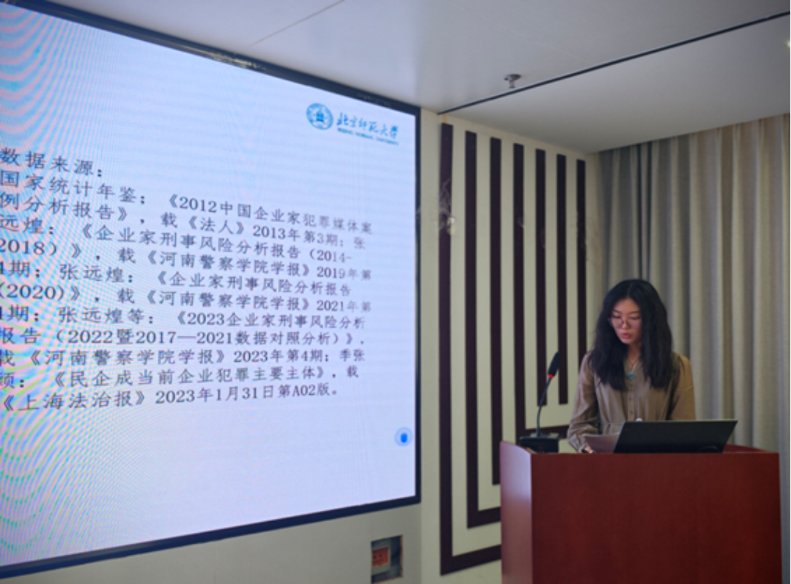
He Huiling, a doctoral candidate at the Law School of Beijing Normal University, delivered a presentation entitled "Exploring the Applicability of the Offense of Illegal Conduct of a Similar Business: An Analysis of the New Provisions in the Twelfth Amendment to the Criminal Law." In her argument, she posited that the legal interests safeguarded by the novel provisions for the crime of illegal operation of a similar business pertain to the welfare of corporations and enterprises. She contended that the perpetrator of this crime should align with the entity bound by the duty of non-competition. The act in question must exhibit traits such as "competitiveness," "operational nature," "positional correspondence," and "illegality." Additionally, she proposed that intangible assets and anticipated profits of the enterprise should be encompassed within the protective ambit of this criminal offense.
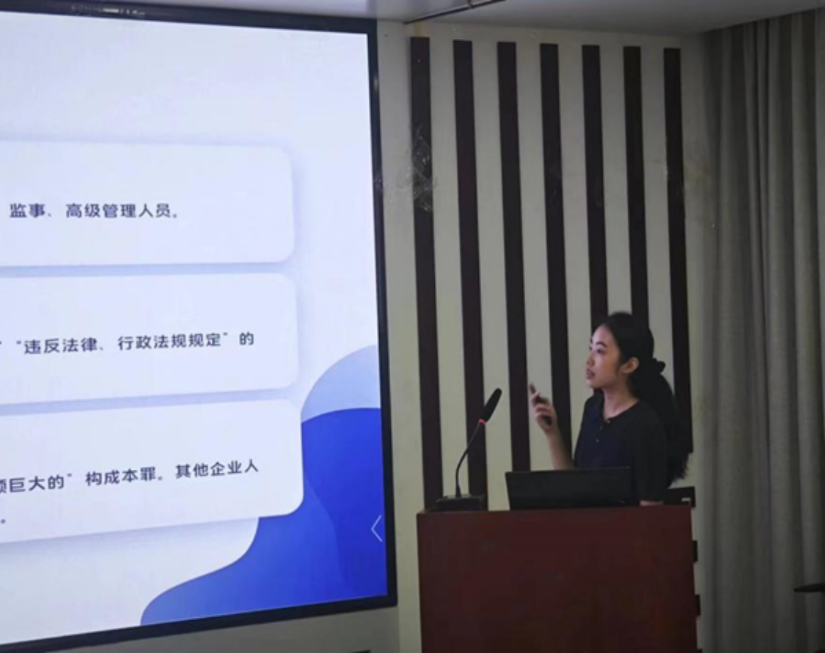
Zou Kao, a doctoral candidate at the Law School of Beijing Normal University, presented a paper on the topic of "Examining the Concept of Uncertain Property Loss in the Crime of Illicit Profits for Relatives and Friends." He contended that, while drawing critical insights from foreign theories, it is imperative to focus on the distinctive positioning of the offense of breach of trust within our nation's criminal law and the establishment of statutory penalties. Grounded in the legal interests protected by the crime of breach of trust, the interpretive harmony within the offense, the provisions and ethos of the "Company Law," and a perspective that more effectively safeguards the property rights of private enterprises, Zou Kao suggested that the property loss in the crime of illicit profits for relatives and friends should be confined to uncertain property loss. In the context of specific adjudication, the determination of whether there is normal trading behavior should be based on the actions in question and should be made after a comprehensive consideration of various factors, thereby reasonably ascertaining "prices significantly above market value" and "prices significantly below market value."
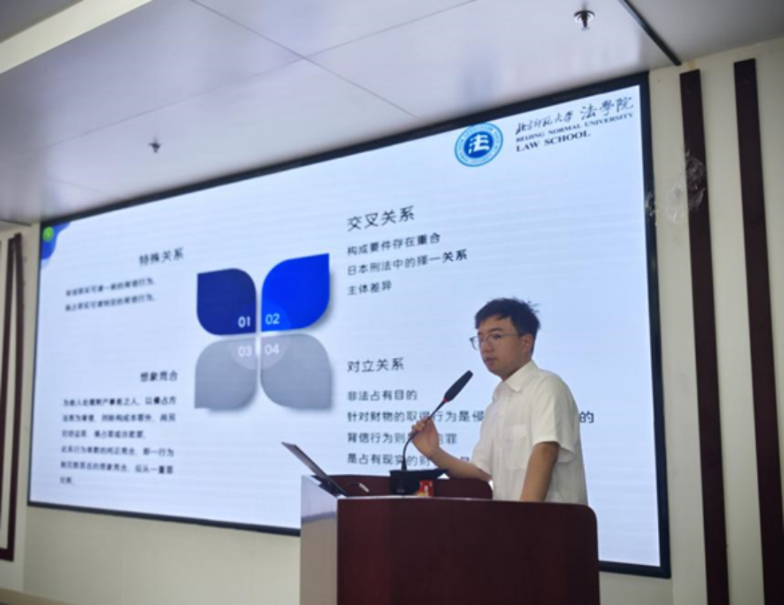
Following the conclusion of the presentations by the three speakers, the session transitioned into the discussion phase. Lu Tianhong, a doctoral candidate at Tsinghua University School of Law, expressed thorough appreciation for the theoretical and practical significance of the reports delivered by the trio. He commended Wang Xinyu's policy recommendations for enhancing the protection of private enterprises as offering valuable guidance for legislative and judicial endeavors. Lu Tianhong also praised He Huiling's research content and methodologies for their substantial theoretical and practical contributions. He noted the richness and depth of the foreign literature cited in Zou Kao's paper. Additionally, Lu Tianhong shared his insights on the aforementioned amendments to the Criminal Law Amendment (XII), contributing further to the scholarly discourse.
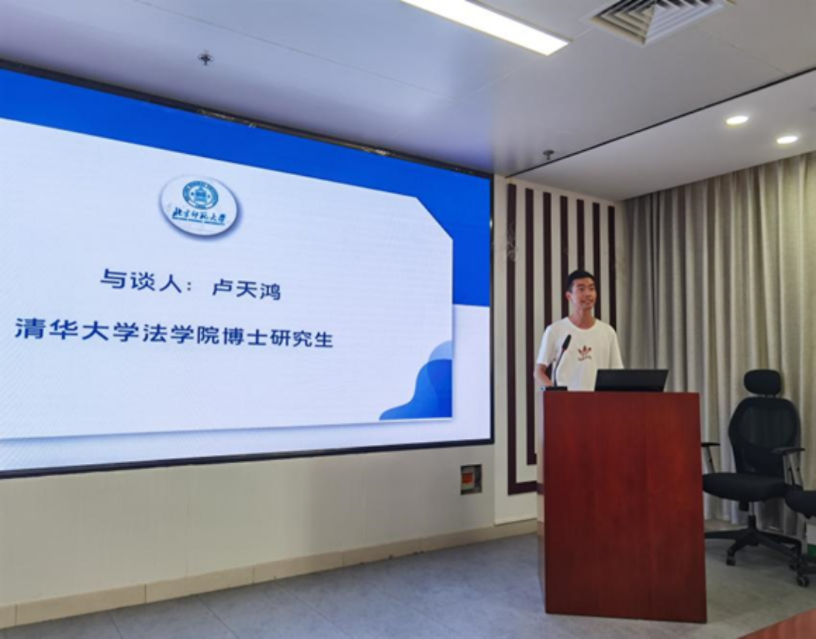
Xin Jiadong, a doctoral candidate at the Law School of Renmin University of China, conducted a thorough analysis of the research styles and methodologies employed by the three presenters during the discussion segment. Regardless of whether their research was macro in scope or finely detailed, each presenter successfully integrated the amendments of the "Criminal Law Amendment (XII)" with the pertinent issues, articulating their perspectives or proposed countermeasures, which deserve full recognition. Building on this foundation, Xin Jiadong offered meticulous and specific suggestions for refinement to each presenter's paper.
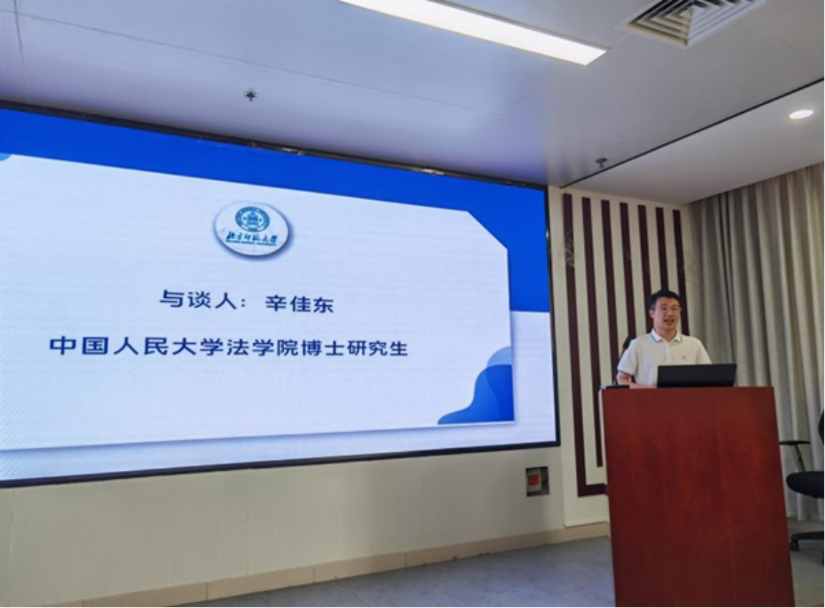
During the review segment of this session, Associate Professor Shang Haowen from the Law School of Beijing Normal University extended a warm welcome to the three doctoral students from external institutions. While fully acknowledging the substance of the presenters' reports, he provided comprehensive suggestions for the revision and enhancement of their papers. He underscored the necessity for alignment between the titles at various levels of the articles and their respective content, the importance of robust argumentation, the standardization of case references, and the practicality of the viewpoints presented. Professor Shang also encouraged the students to heighten their sensitivity to academic issues, to engage in peer academic exchanges, to actively initiate a diverse range of doctoral academic salon activities, and to collaboratively foster an environment conducive to academic dialogue and mutual learning.
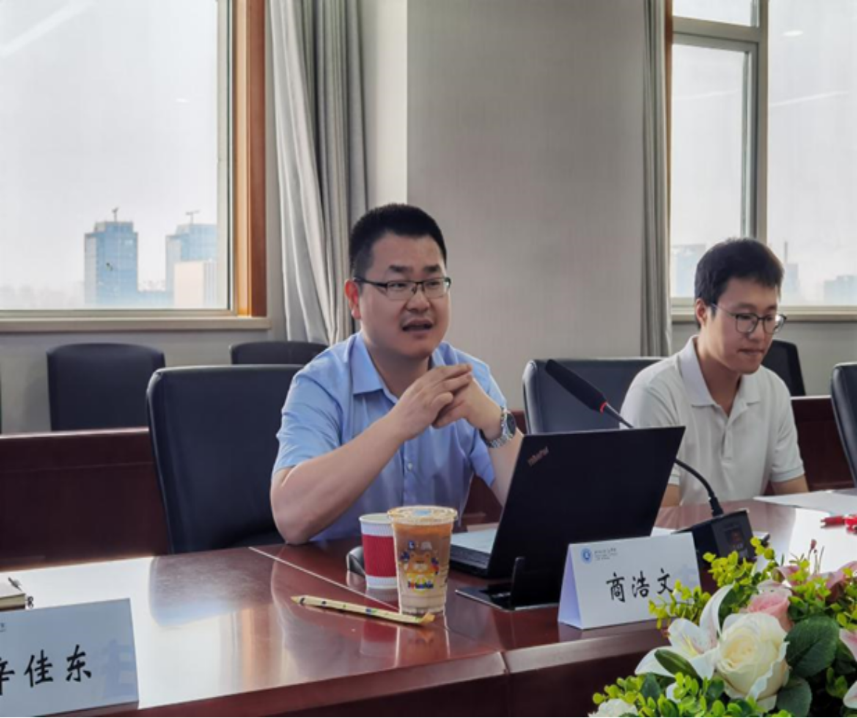
The theme of the second session was "The Twelfth Amendment to the Criminal Law and the Prevention and Control of Corruption Crimes", hosted by He Huiling, a doctoral student at the Law School of Beijing Normal University. The doctoral candidate Cong Yujun from the Law School of Beijing Normal University presented a report titled "Addressing the Dissonance between Protection and Prosecution in the Management of Corruption Offenses in Private Enterprises." Field research has revealed that corruption offenses within private enterprises are challenging to manage, and the actual efficacy of criminal legislation in safeguarding the rights and interests of these enterprises is yet to be fully ascertained. In practice, the bribery conduct of private enterprises is intricate and distinctive, and the blanket punishment of such offenses might inadvertently harm enterprises that are still viable and deserving of protection. It is imperative that we ground our strategies in the current circumstances of private enterprises in our country and devise targeted and comprehensive measures to combat corruption and criminal activities.
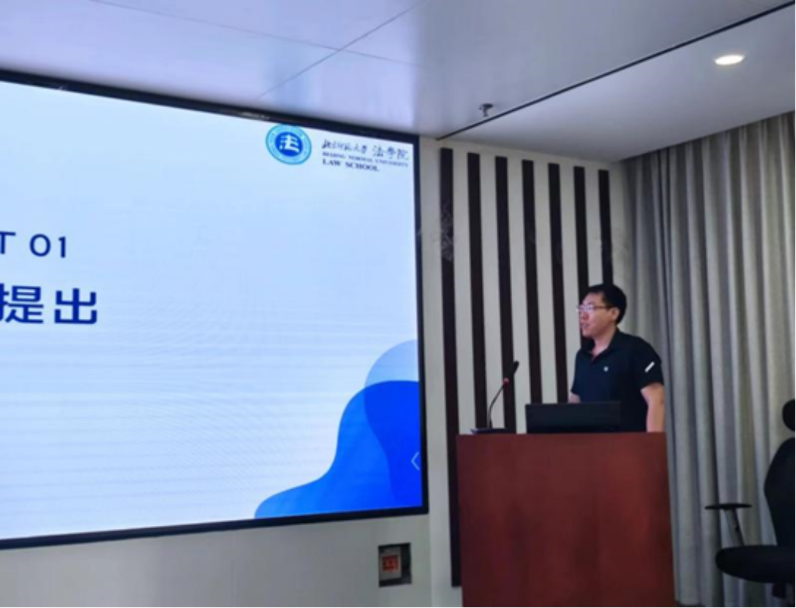
Zhou Xinmiao, a doctoral candidate at the Law School of Beijing Normal University, delivered a report entitled "Investigating Money Laundering Offenses in the Context of Corruption and Bribery." Zhou's paper posits that the primary challenges associated with money laundering crimes stemming from corruption and bribery revolve around the identification of the crime and the quantification of offenses. In the context of establishing the crime, within the framework of "providing a financial account," the perpetrator must engage in both "providing a financial account" and subsequent "transfer behavior" to be guilty of money laundering. The ascription of the perpetrator's subjective "knowledge" should encompass both "general awareness" and "definite knowledge." When determining the number of offenses, Zhou suggests adopting a case-by-case approach, guided by the principles of multiple offenses, constructive concurrency, and complicity in sentencing.
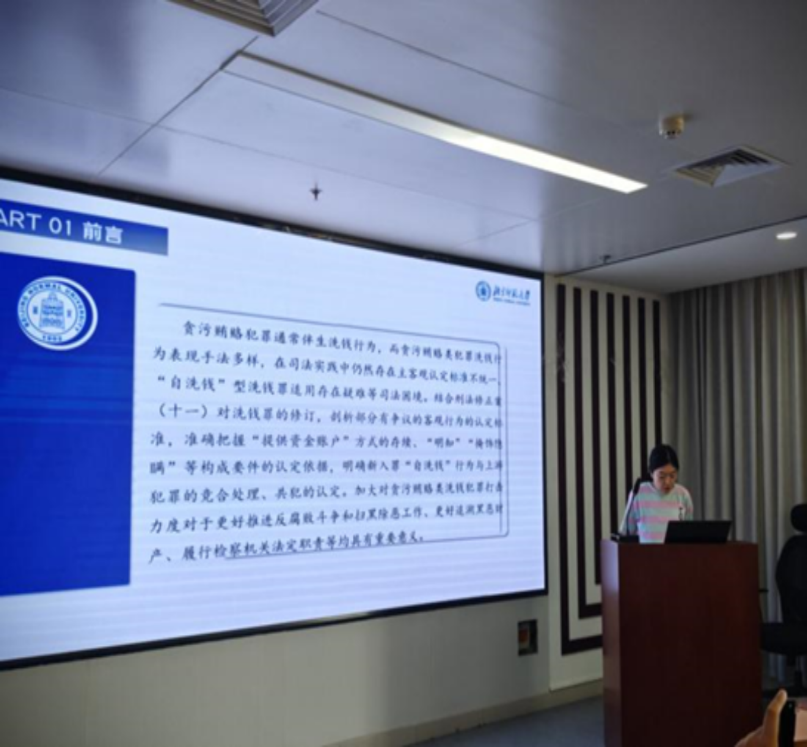
Zhou Kai, a doctoral candidate at the Law School of Beijing Normal University, presented a report entitled "Assessing Criminal Liability in Cases of Extorted Bribes." Zhou contended that individuals who are extorted into paying bribes should not be automatically deemed guilty of the offense of bribery merely due to the acquisition of improper gains. It is crucial to adhere to the principle that "seeking improper benefits" constitutes the subjective element of the crime of bribery. The evaluation of the perpetrator's subjective intent should focus on the act of delivering property, and a hierarchical sentencing framework for bribery offenses should be implemented, with severe penalties for proactive bribery and more lenient treatment for passive bribery.
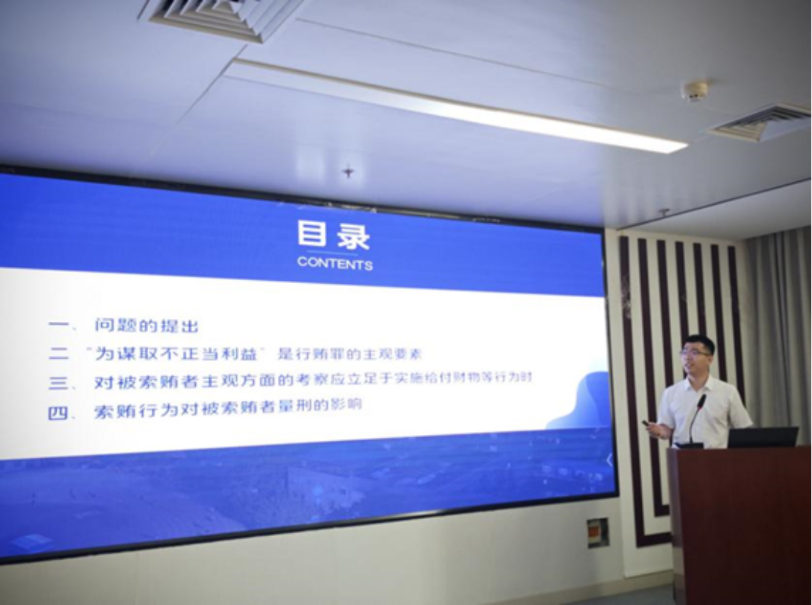
After the three presenters finished their reports, the session entered into the discussion phase. Sun Jianfeng, a doctoral student at the Law School of Renmin University of China, fully affirmed the novelty of Cong Yujun's empirical research methods and the solidity of the research process, the comprehensiveness and detail of Zhou Xinmiao's article, and the profundity of Zhou Kai's article. He also proposed aspects that could be further revised and improved in the three presenters' papers, such as focusing on the conversion of empirical research interview discourse and academic paper expression, and the refinement of the paper introduction.
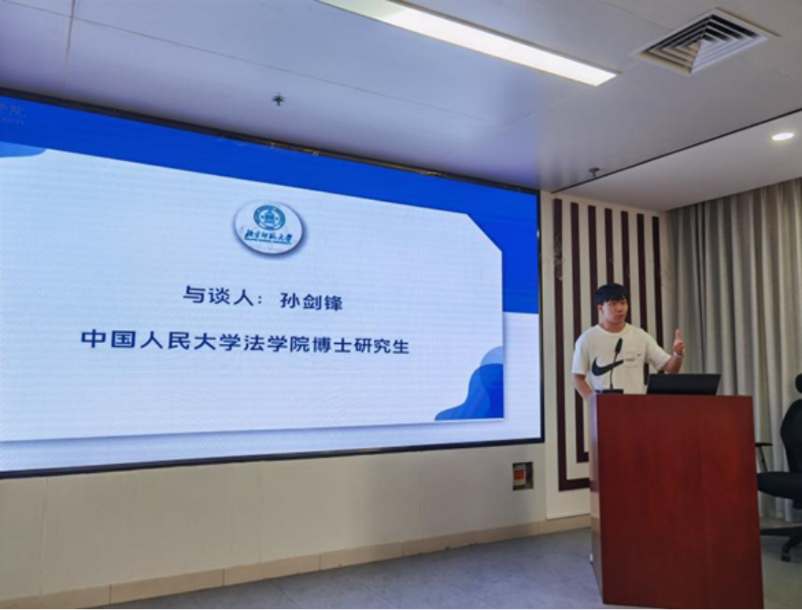
Li Jing, a doctoral candidate at the Law School of Beijing Normal University, expressed appreciation for the depth of thought and the inspiration provided by the reports from the three presenters. From a writing perspective, Li Jing suggested strategies for aligning the title and content of a paper, emphasized the importance of problem awareness in the introductory section, and offered guidance on how to clarify common terms from non-criminal law within the text. Additionally, Li Jing provided detailed revision recommendations for the papers submitted by the three presenters.
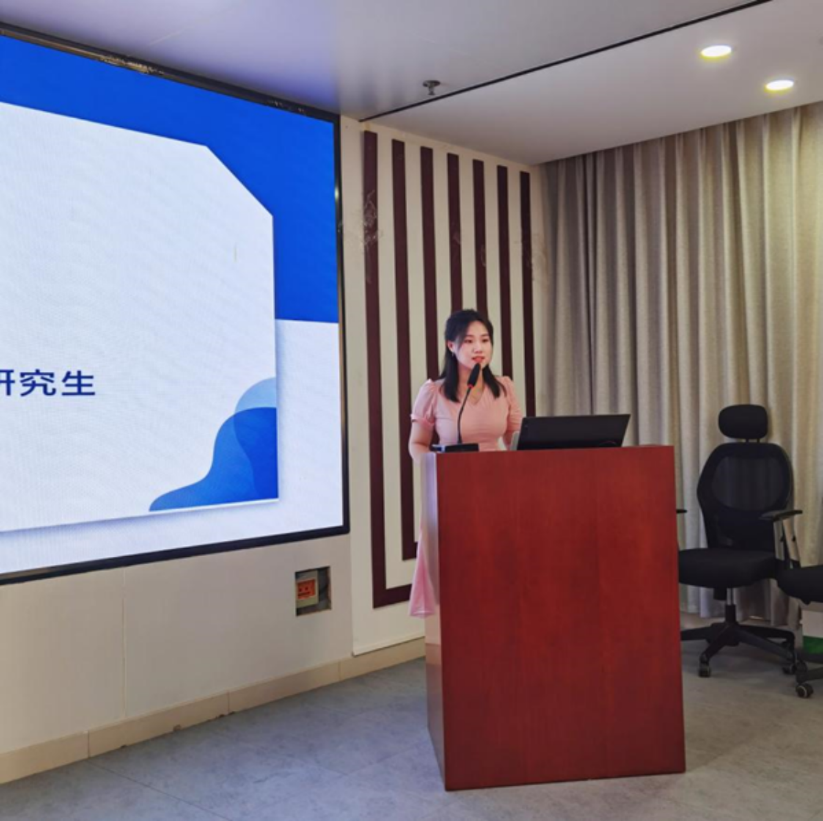
During the comment phase, Professor Li Di from the Law School of Beijing Normal University used the three words "innovative, comprehensive, and in-depth" to evaluate the reports of the three reporters in this unit. He fully affirmed the value of the research of the reporters in this unit, and on this basis put forward suggestions for revising and improving the papers of the three reporters, such as paying attention to the standardization of the terminology used in academic papers and the relevance of the title and content of the article. In terms of the selection of research materials, students are advised to refer to some overseas literature, especially international conventions, United Nations documents, etc., and focus on improving the international perspective of the research.
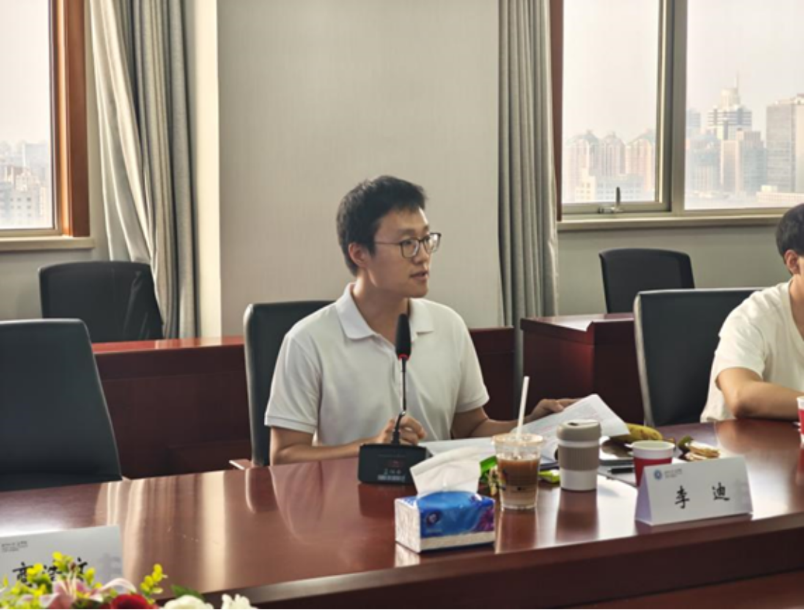
Over the course of nearly four hours, encompassing reports, discussions, and commentary across two sessions, the participating faculty and students engaged in profound exchanges and debates on the theoretical and practical aspects of the "Criminal Law Amendment (XII)." This event not only heightened the academic research fervor among doctoral candidates and deepened the collective understanding of the issues at hand but also fostered the enhancement of the academic writing proficiency and standards of the students involved. With this, the current series of academic presentations by the law doctoral students of Beijing Normal University has drawn to a successful close.
